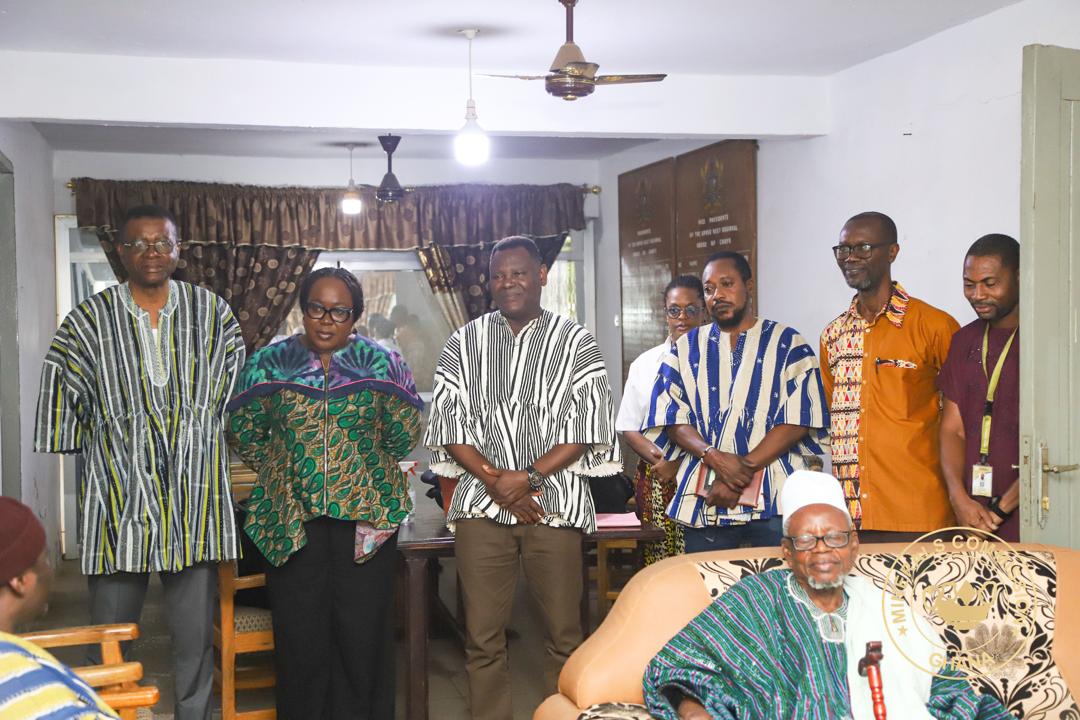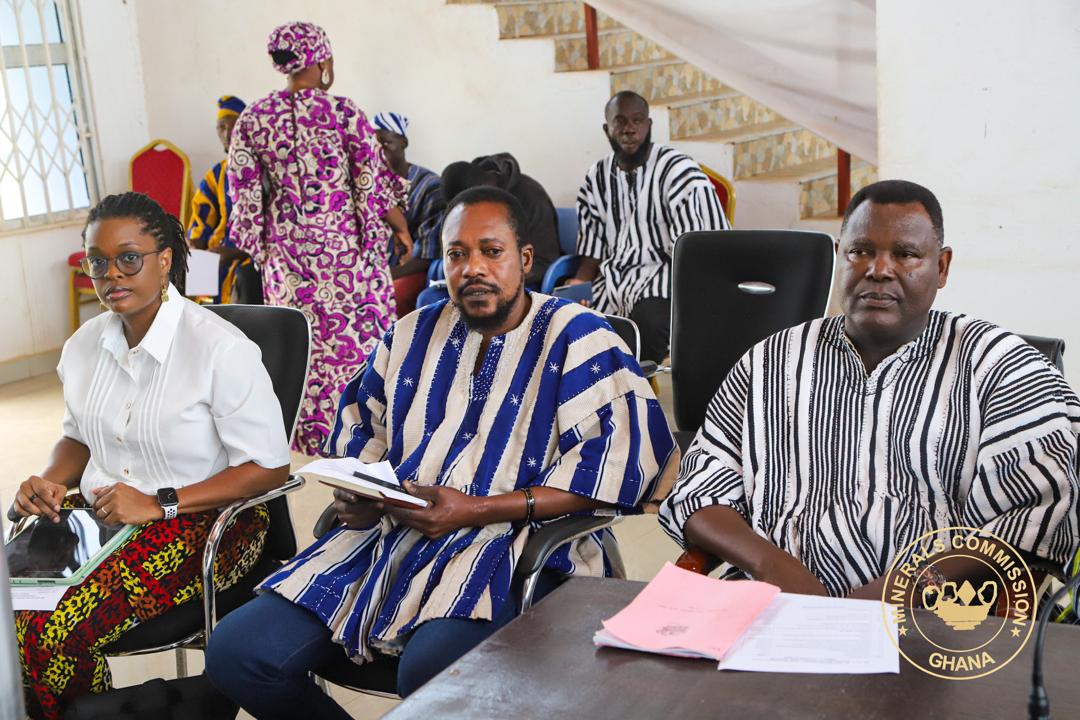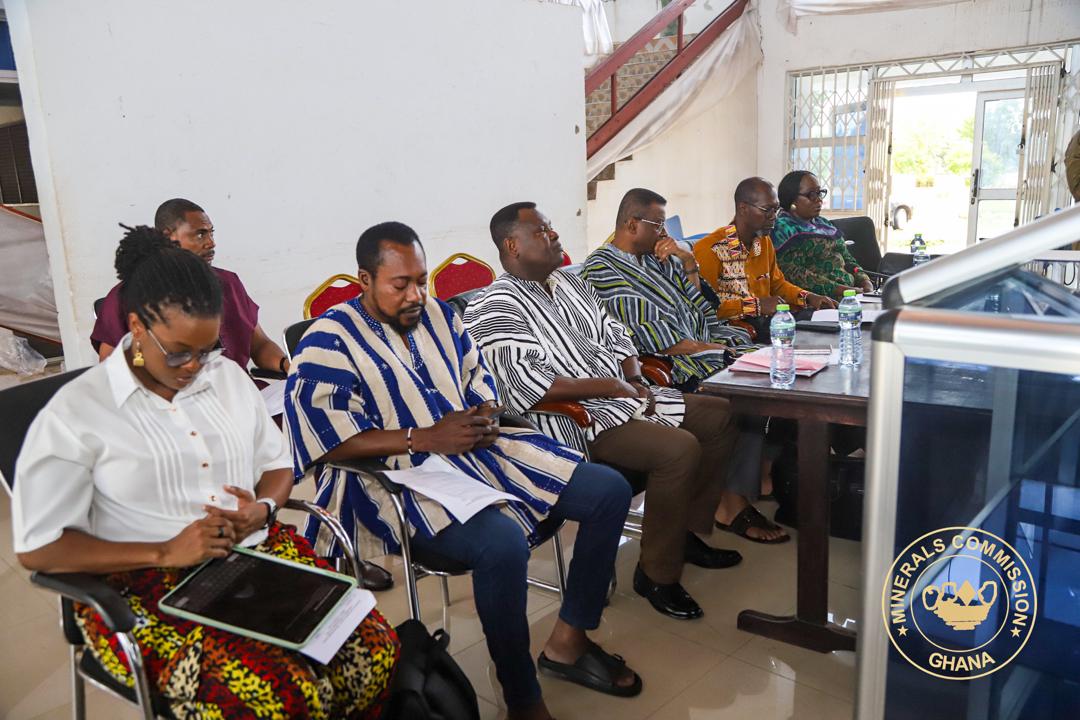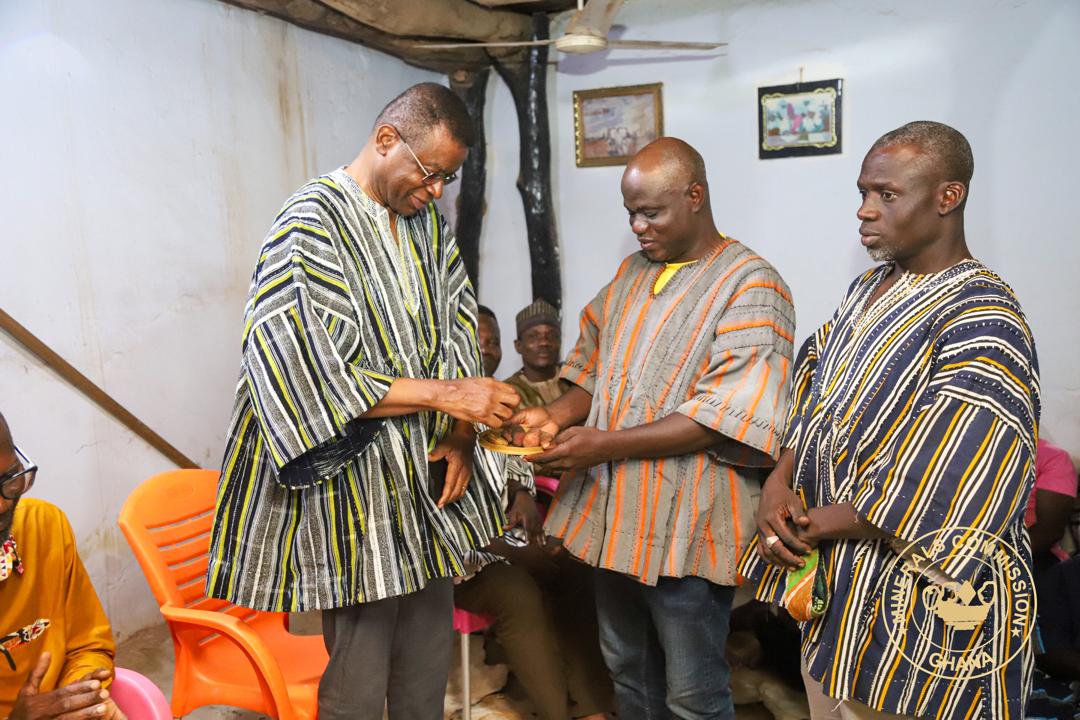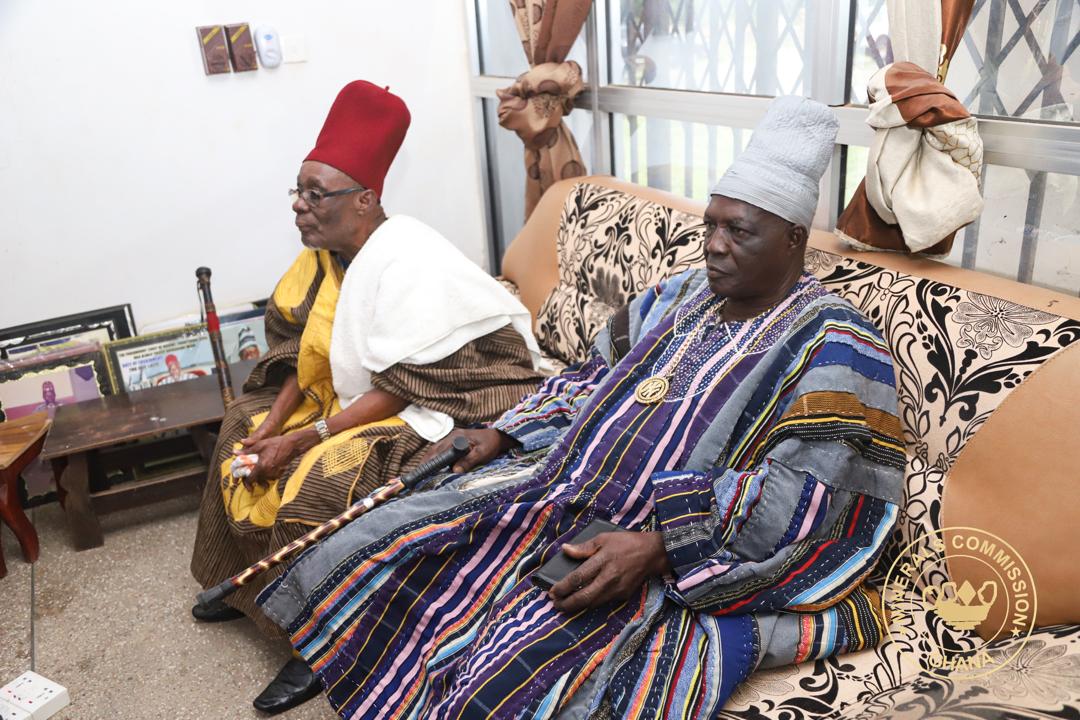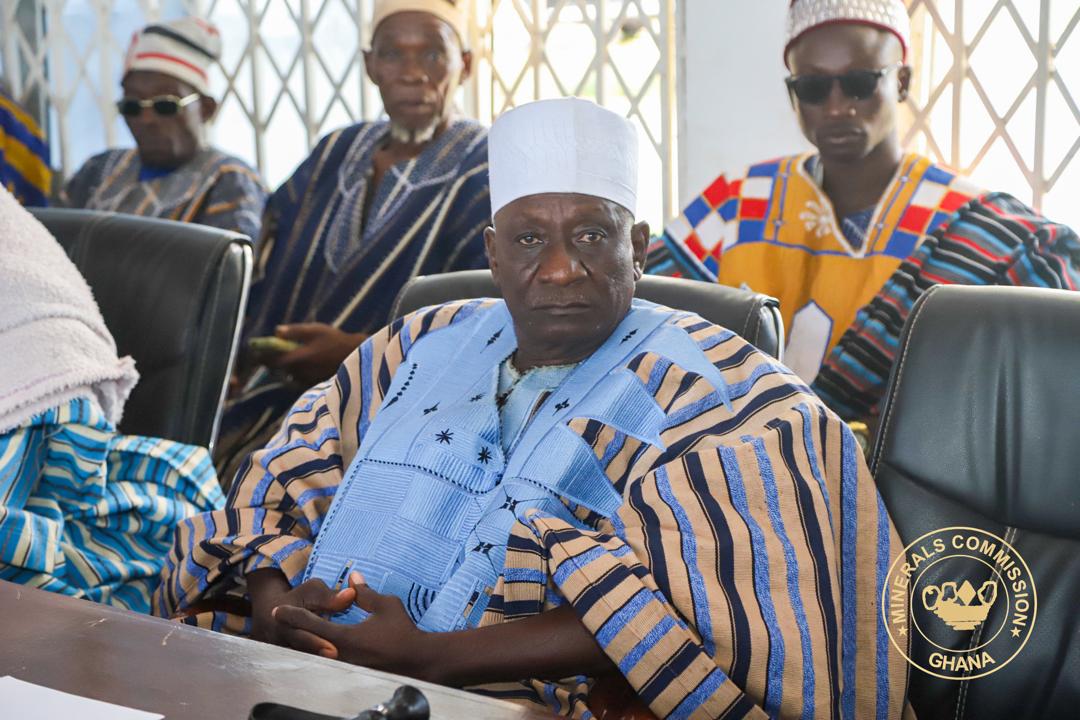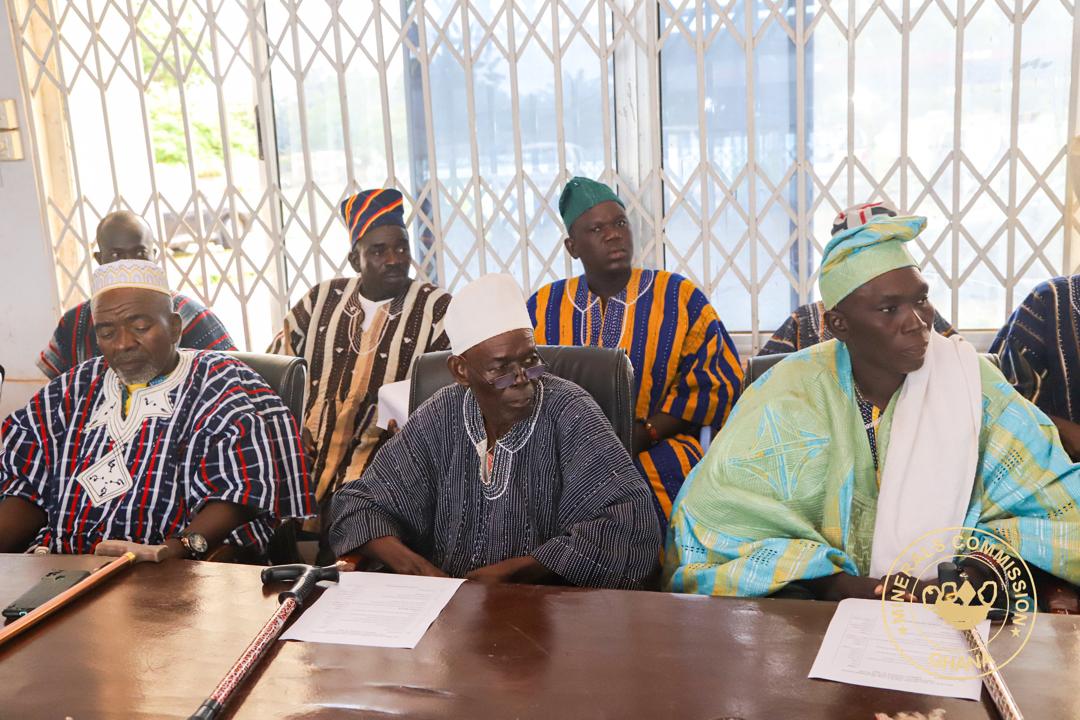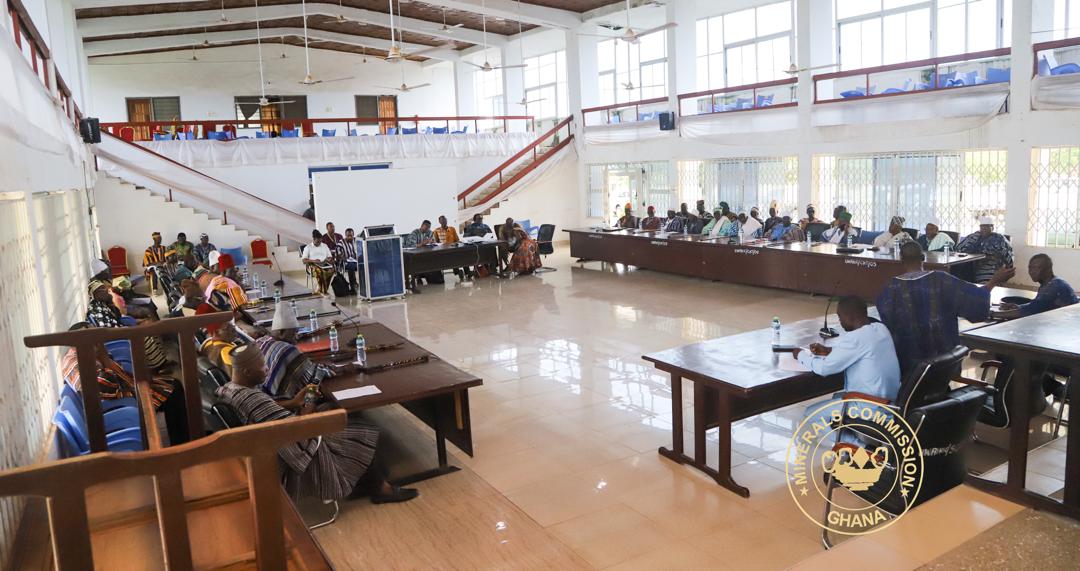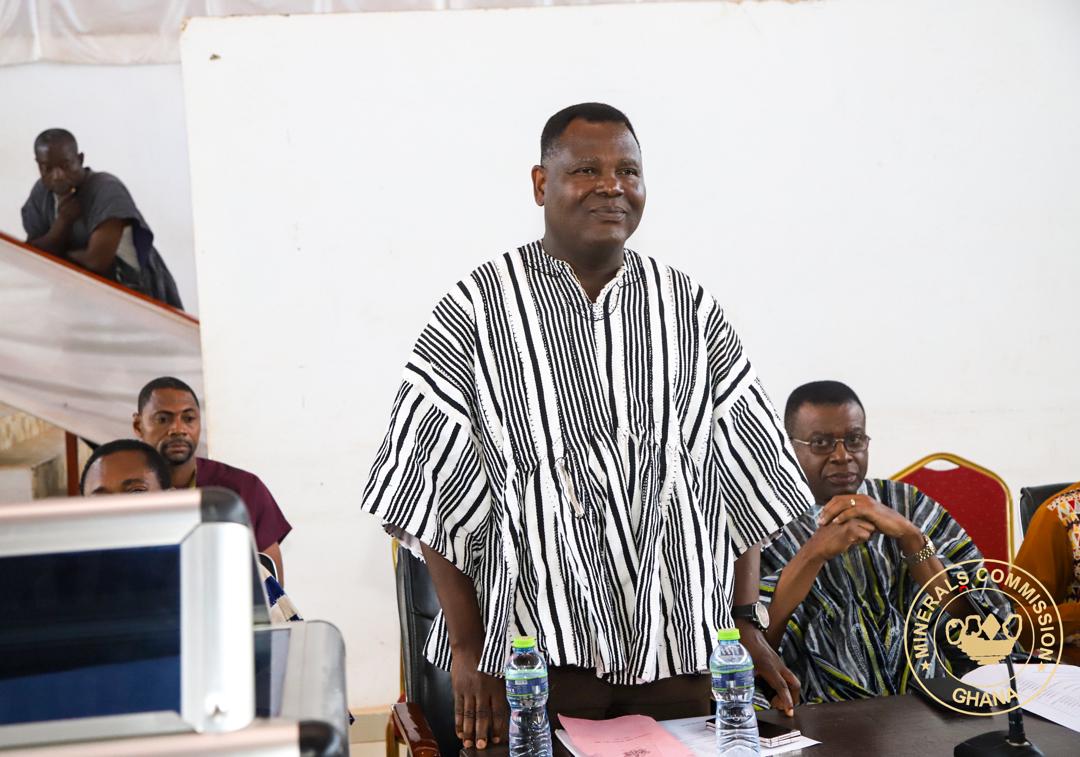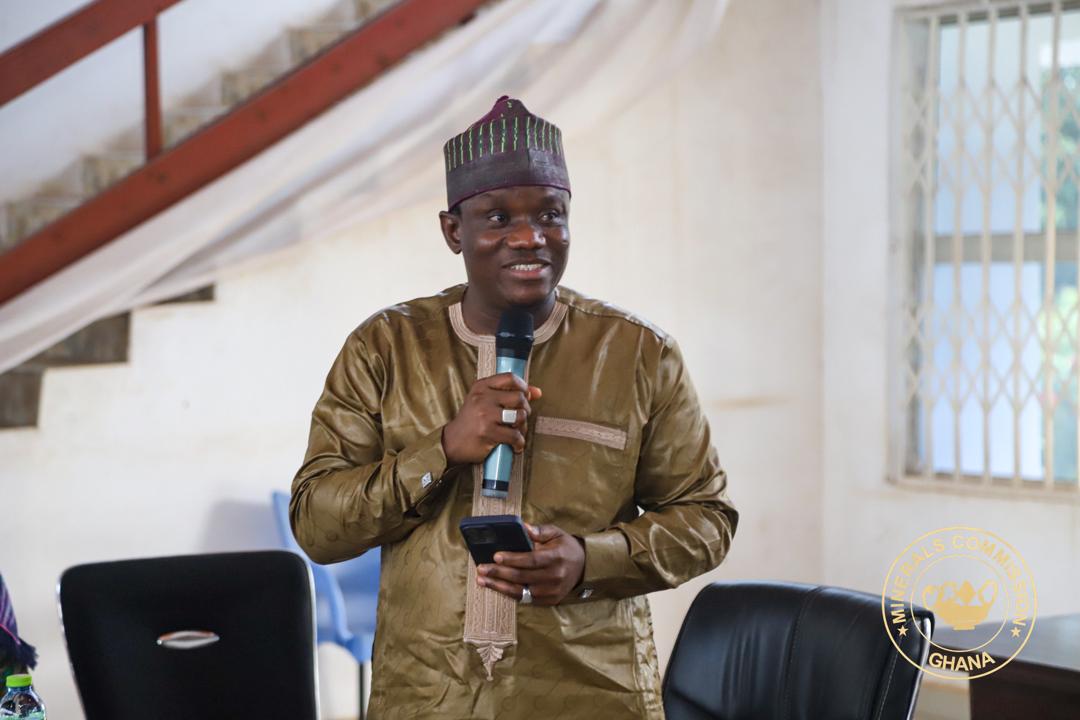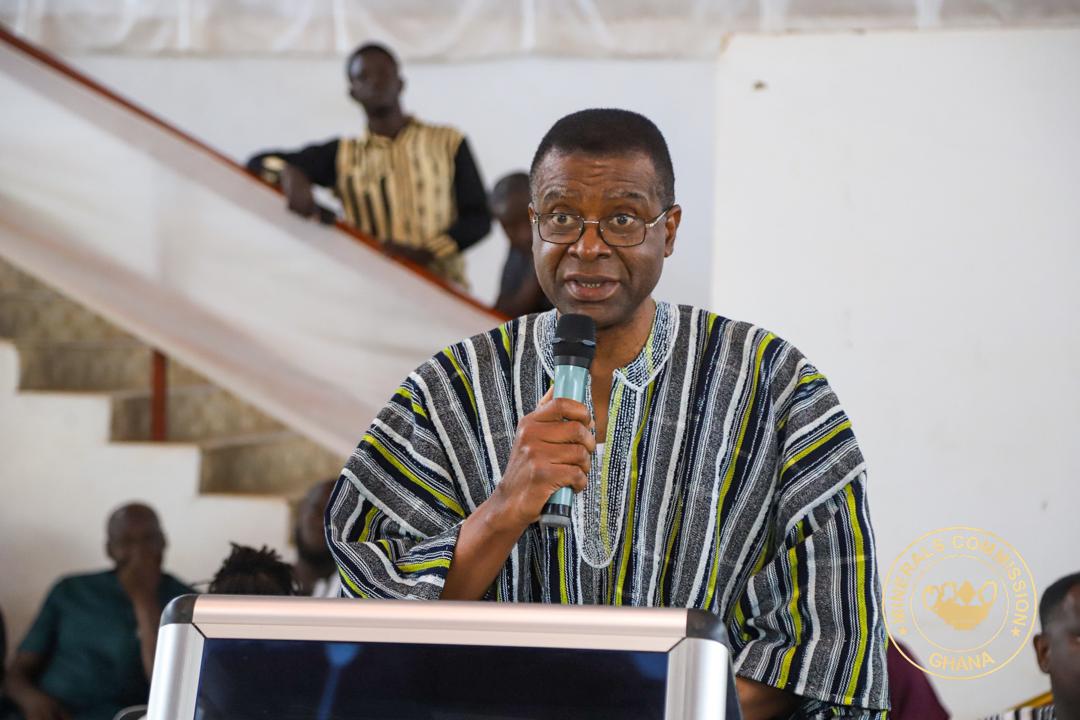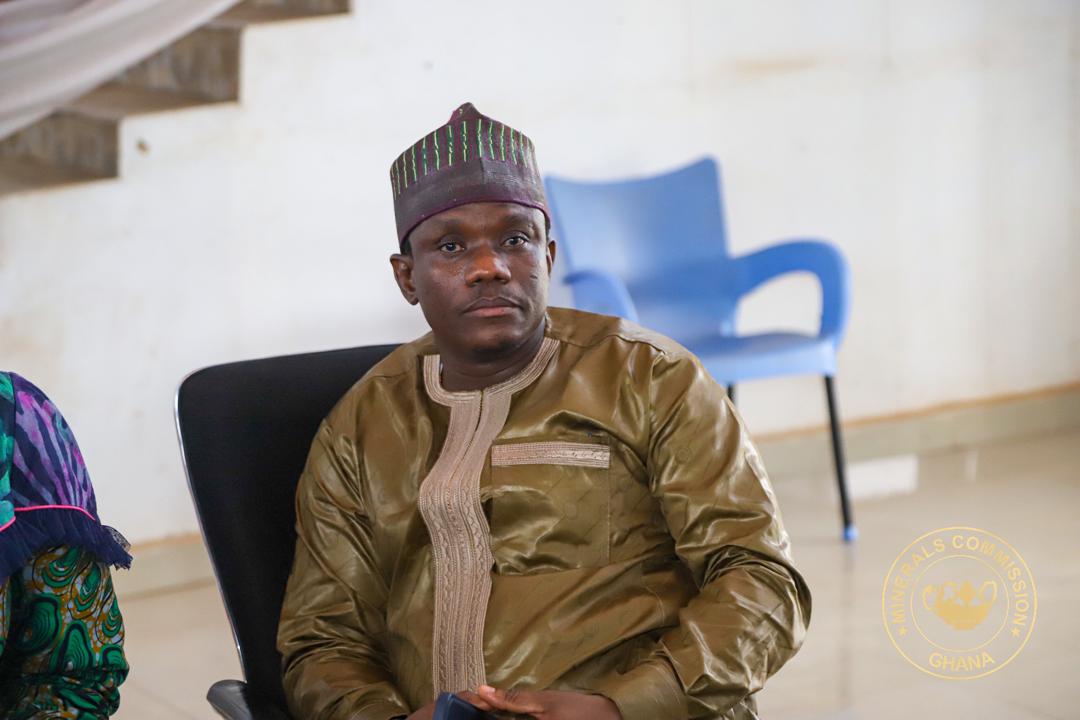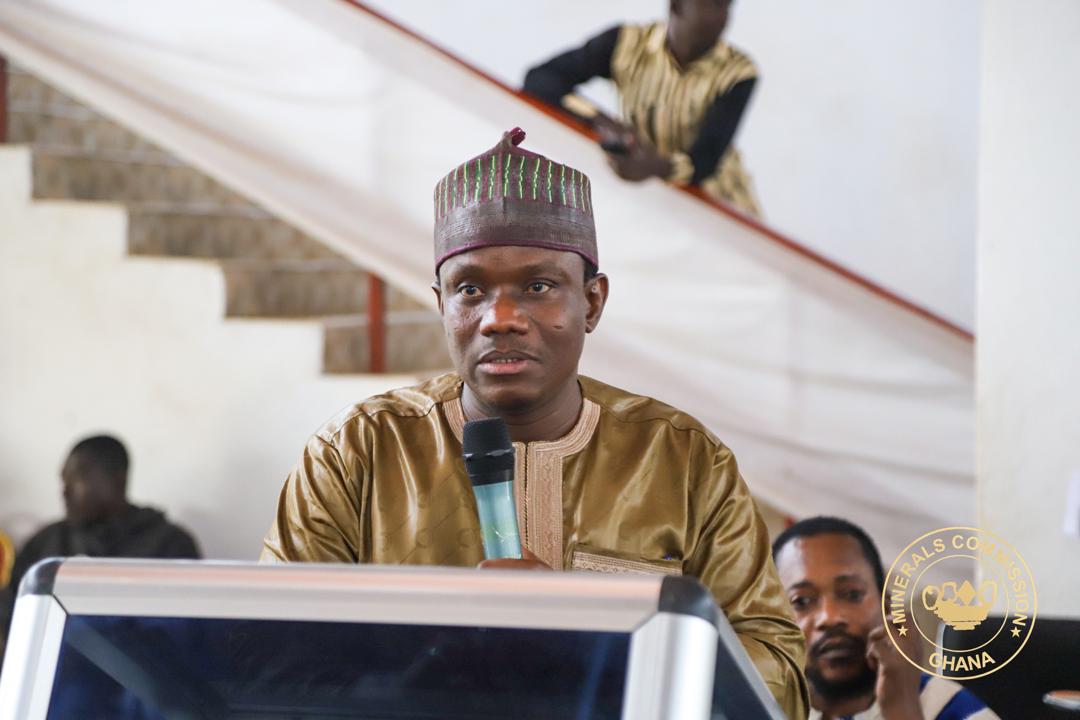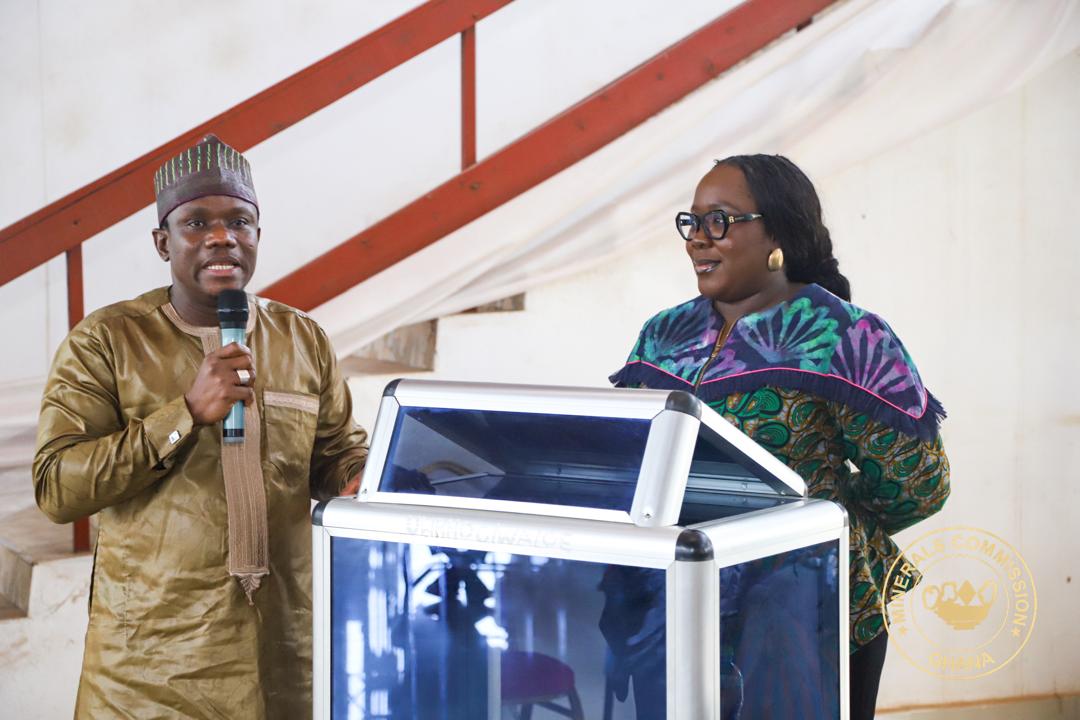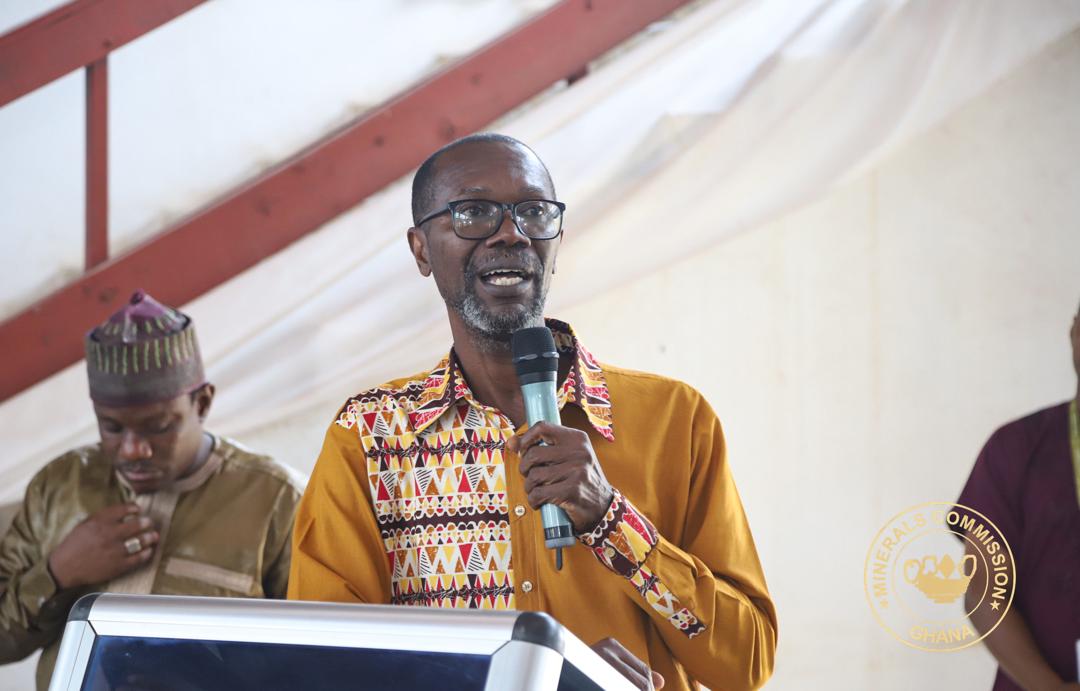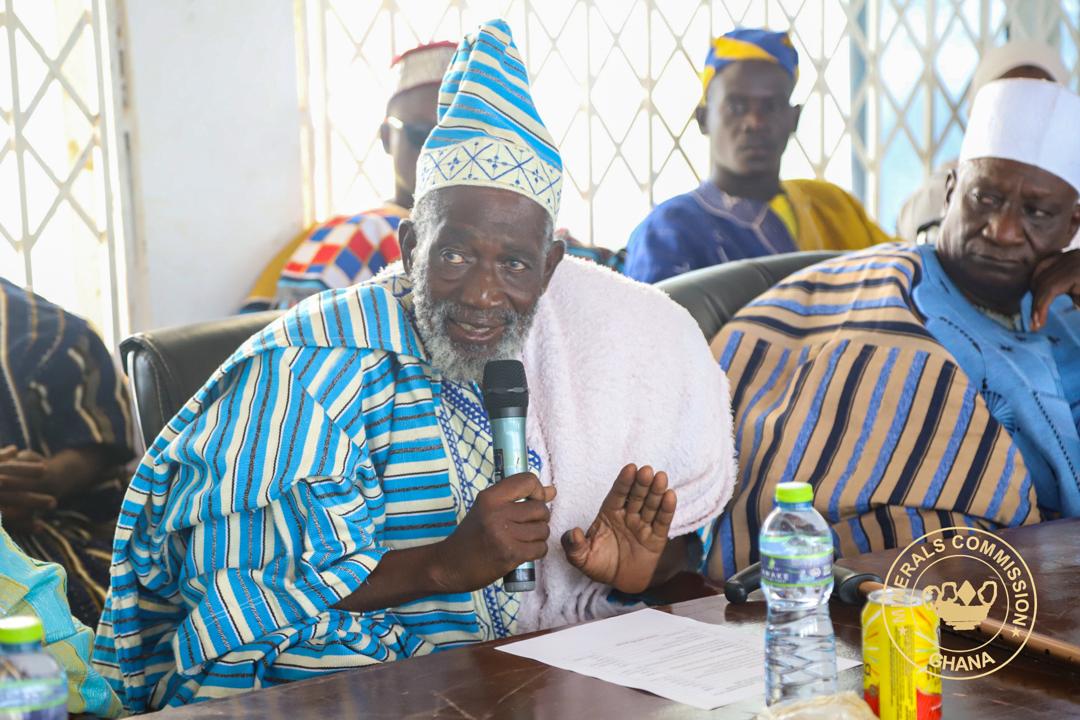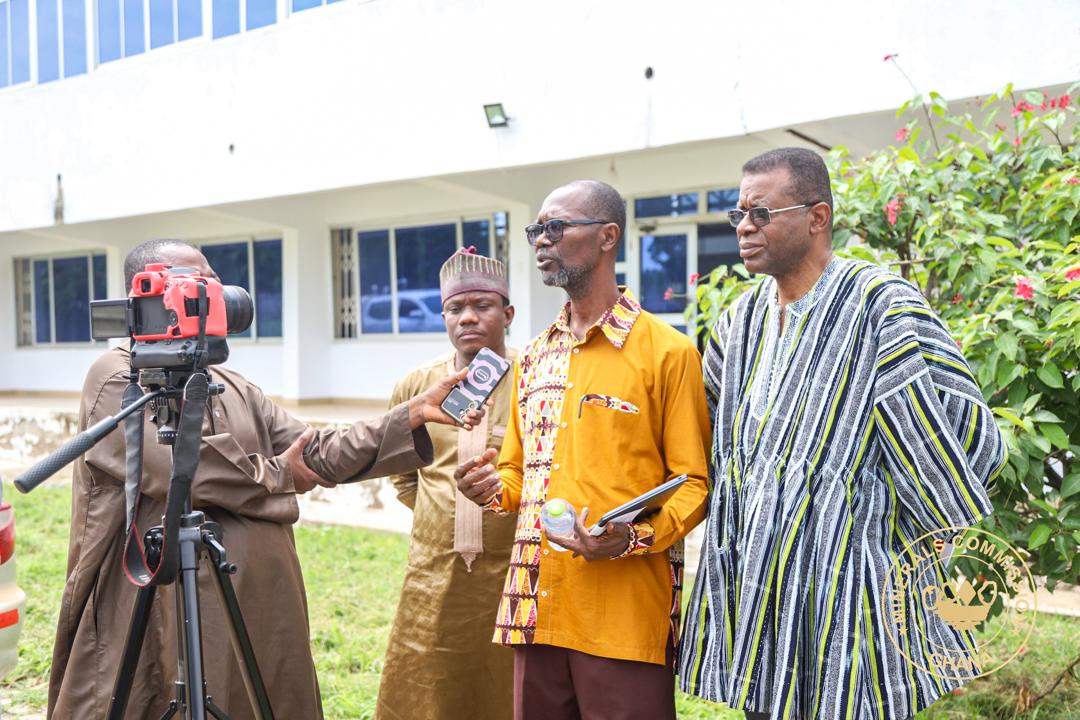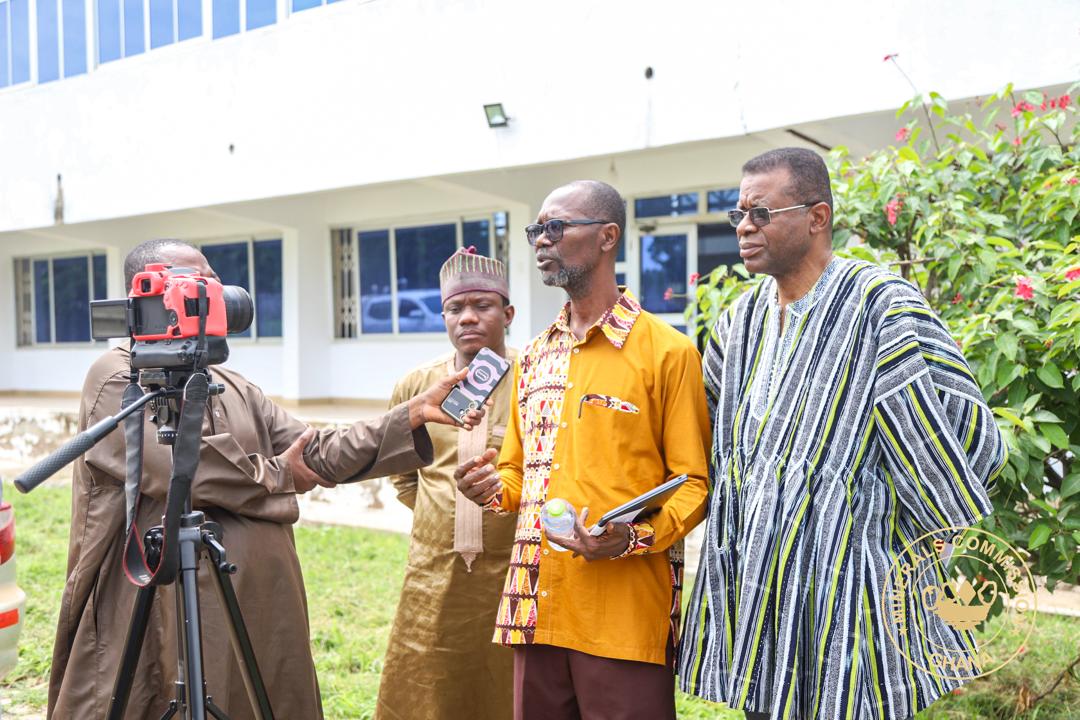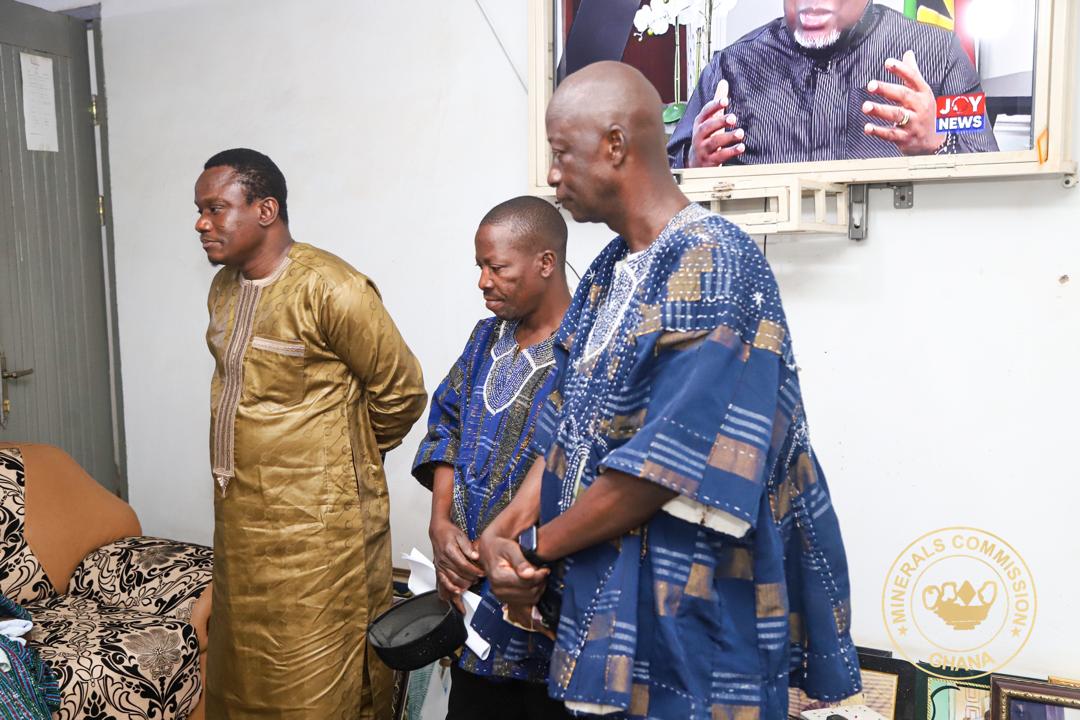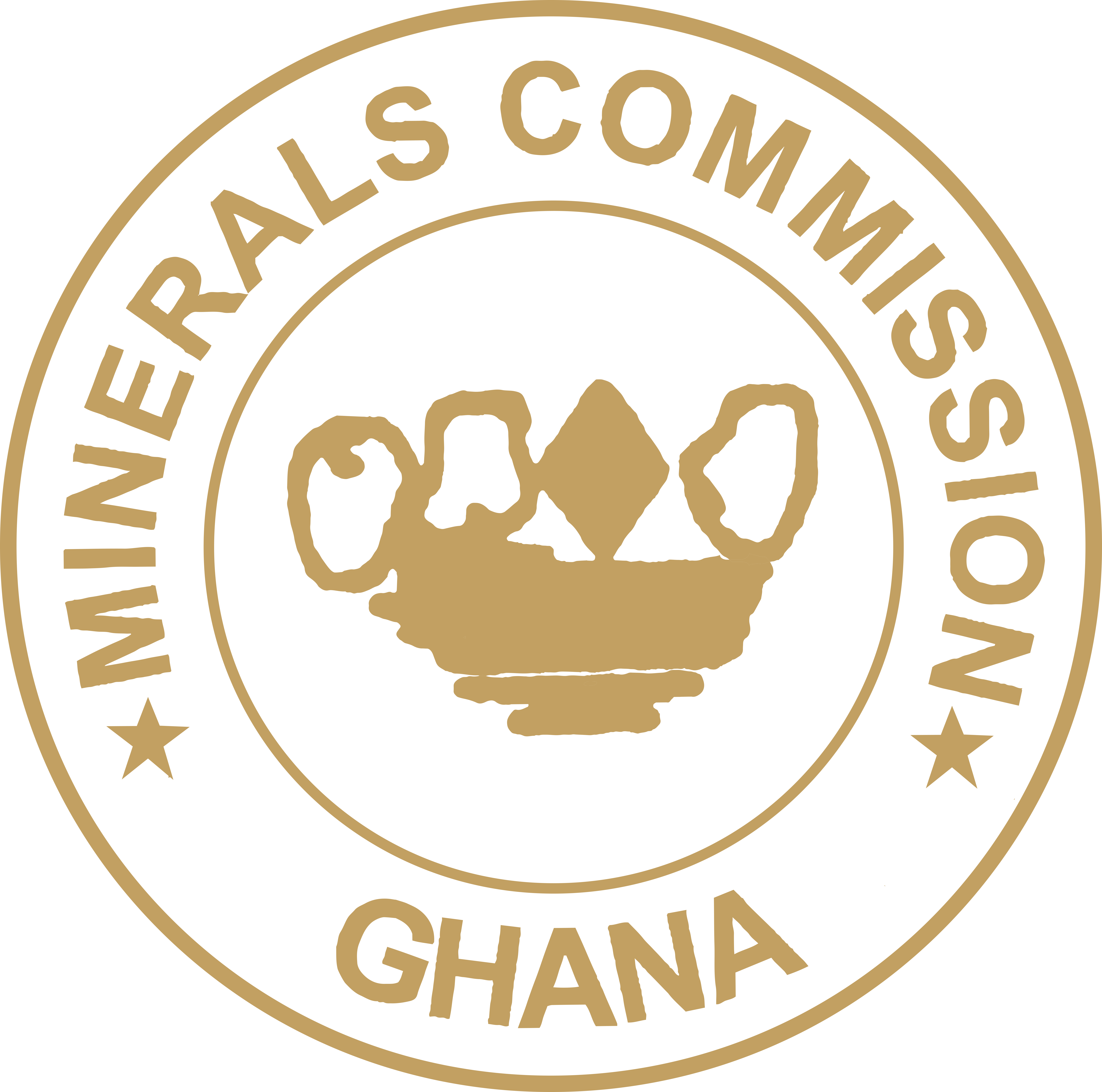Ghana Mining Policy Review Committee Confers with the Upper West Regional House of Chiefs
On August 22, 2025, the Minerals and Mining Policy Review Committee conferred with the Upper West Regional House of Chiefs. Professor Jerry Samuel Yaw Kuma, Technical Advisor representing the Minister of Lands and Natural Resources, Hon. Emmanuel Armah Kofi Buah, emphasized that the Minerals and Mining Policy of 2014 and the Minerals and Mining Act, 2006 (Act 703), has been operational for nearly two decades. Given the rapid changes occurring globally and regionally, it has become imperative reassessed both the policy and legislative frameworks governing minerals and industry.
He emphasized that as a nation, we must consider multiple factors.
To begin with, government must develop policies that align with national development plans and manifesto commitments, while ensuring effective multi-tier interventions to address emerging complexities and national demand in managing the country’s mineral resources over the long term.
Also, the global minerals and mining landscape has undergone significant transformation, partly driven by technological advancements and evolving best practices. Many countries in the sub-region and beyond, including South Africa, have updated their policy and legal frameworks to reflect current realities. It is essential that we follow suit in we reviewing our laws and policies to ensure they remain relevant and effective.
Furthermore, the implementation of our Minerals and Mining Policy has encountered some challenges during the course over the last decade. To address these challenges, we must identify solutions and build consensus on their implementation. In light of these considerations, the Minerals Commission in collaboration with the Ministry of Lands and Natural Resources are consulting stakeholders across the country. As a key stakeholder, the Regional House of Chiefs plays a vital role in shaping the future of the country’s mineral resources and wellbeing of the citizens.. The objective of these consultations is to gather insights and suggestions from all the traditional authorities, incorporating your wisdom and advice into the policy and legislative frameworks. He said.
Moreover, we aim to develop a balanced, transparent, and practical framework that benefits all stakeholders. By working together, we can create a robust and effective policy that guides and support the sustainable development of our mineral resources.
Kuoru Abu Diaka Sukabe Ninia (V), the Paramount Chief of the Zini Traditional Area, underscored the significance of the stakeholder engagement forum in fostering public education on the review of the 2014 Mining Policy and proposed legal amendments. Kuoru Abu Diaka, Vice President of the Regional House of Chiefs presided over the meeting and observed that the stakeholder consultation is a laudable initiative aim at elucidating the legal and institutional roles of traditional authorities as custodians of the land and stewards of community advocacy and development.
The Paramount Chief also emphasized that members of the House expect a transparent roadmap for the inclusive implementation of policy initiatives, ensuring that traditional authorities are well-informed. He noted that the policy’s primary objective is to guarantee Ghanaians’ access to clean, safe, and environmentally friendly mining practices for domestic, commercial, and industrial purposes, with benefits that outweigh the disadvantages. Commending the Minerals Commission and the government for initiating this stakeholder engagement, Kuoru Abu Diaka Sukabe Ninia (V) expressed confidence that the nationwide consultation, which have already taken place in several regions, will culminate in the successful implementation of the policy and proposed legal amendments, ultimately enhancing the operations of Minerals Commission.
Mr. Benjamin Aryee, former Chief Executive Officer of Minerals Commission and chairman of the Policy Review Committee, presented a comprehensive review of the 2014 Mining Policy, highlighting salient new provisions. Notably, he emphasized the integration of the Green/Critical Minerals Policy, which underscores the imperative of sustainable mining practices in the face of burgeoning global demand for critical minerals.
Furthermore, Mr. Aryee discussed the impact of emerging global trends, including climate change and the increasing importance of Environment, Social, and Governance (ESG) standards, on Ghana’s mining sector. He also highlighted key government policies, such as the introduction of Cooperative Mining and the recategorization of mining, which includes the creation of a medium-scale mining category. ‘Emerging global trends, such as climate change and the growing significance of transition minerals, coupled with challenges arising from implementation over the past decade and the strategic importance of small-scale mining to Ghana’s economy, necessitate a paradigm shift in our approach,’ the statement asserted.
This review underscores the need for a forward-thinking and adaptive mining policy framework that addresses the complexities of the modern mining landscape.
Ma. Fafanyo Kukubor . Gender and Legal Officer of at Minerals Commission presented a thorough analysis of the current state of Ghana’s mining laws, regulations, and administrative guidelines. She emphasized the significance of parliamentary ratification of mining leases, highlighting the crucial role of legislative oversight in promoting accountability, transparency, and good governance within the mining sector.
Ms. Kukubor further underscored the imperative of incorporating a gender-sensitive approach, ensuring that gender considerations are seamlessly integrated and mainstreamed within the mining industry.
In response to a question. Dr. Ahmed Tijani highlighted the importance of serving traditional authorities and other stakeholders notice on the award of mineral rights as provided for in Section 13 of the Minerals and Mining Act, 2006 (Act 703). Dr. Tijani assured of the Commission’s decision to deepen community engagement and consultation with traditional authorities about the award of mineral rights. This he emphasized could be done before operational permits are granted to engender trust and confidence among all stakeholders and to guarantee peaceful coexistence and harmony between operating companies and host mining communities.
The proposed amendment seeks to actively promote the inclusion and participation of persons with disabilities in mining enterprise, thereby cultivating a more diverse and inclusive industry that leverages the talents of all citizens for responsible sustainable mining and national development.
END
